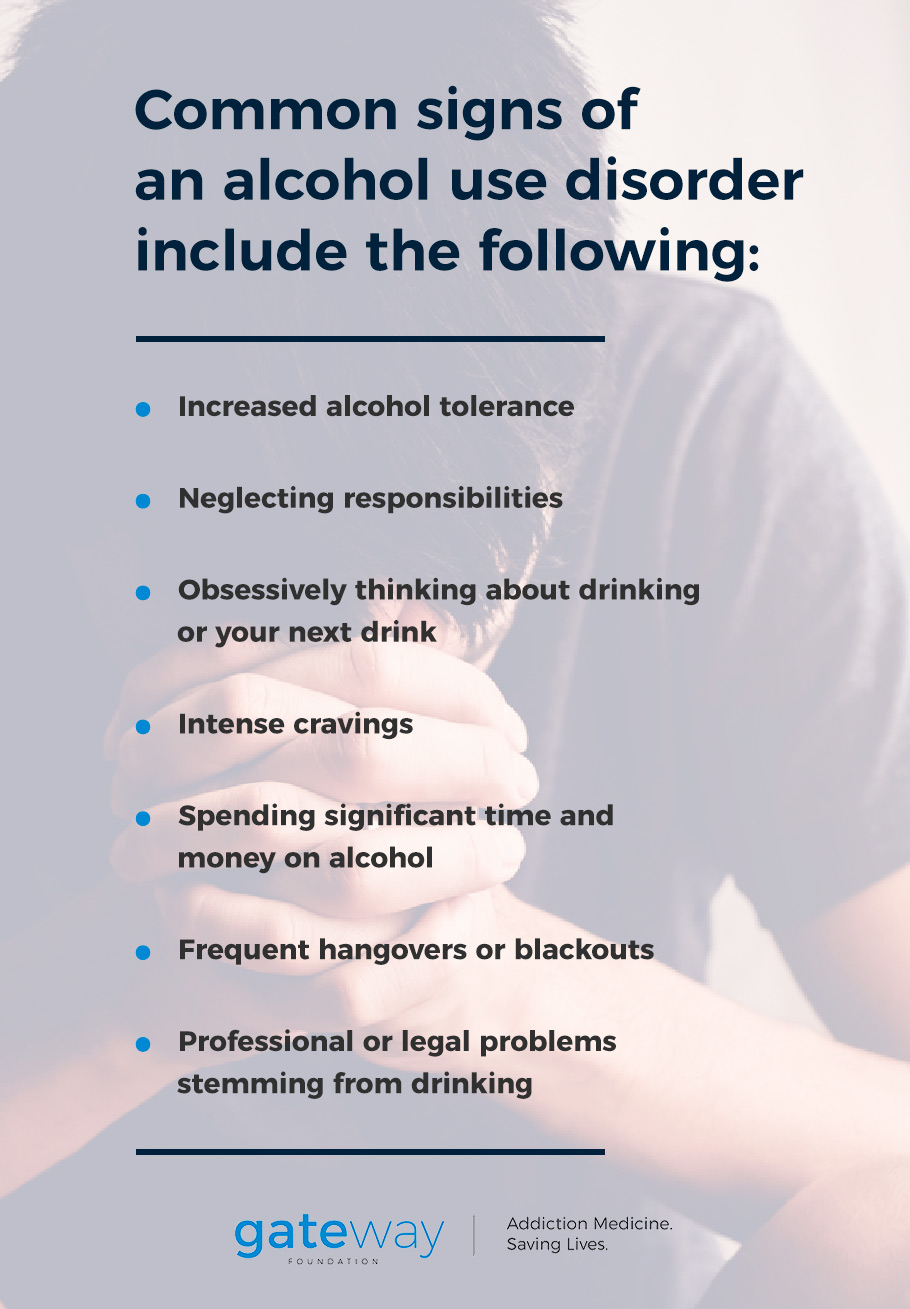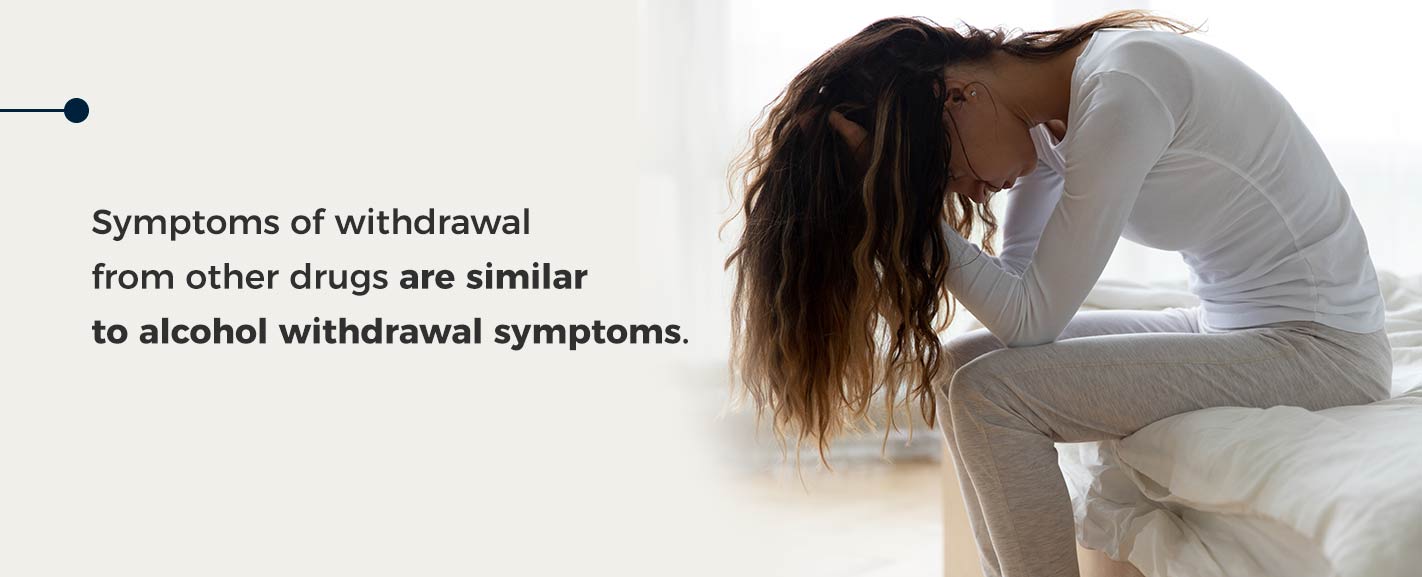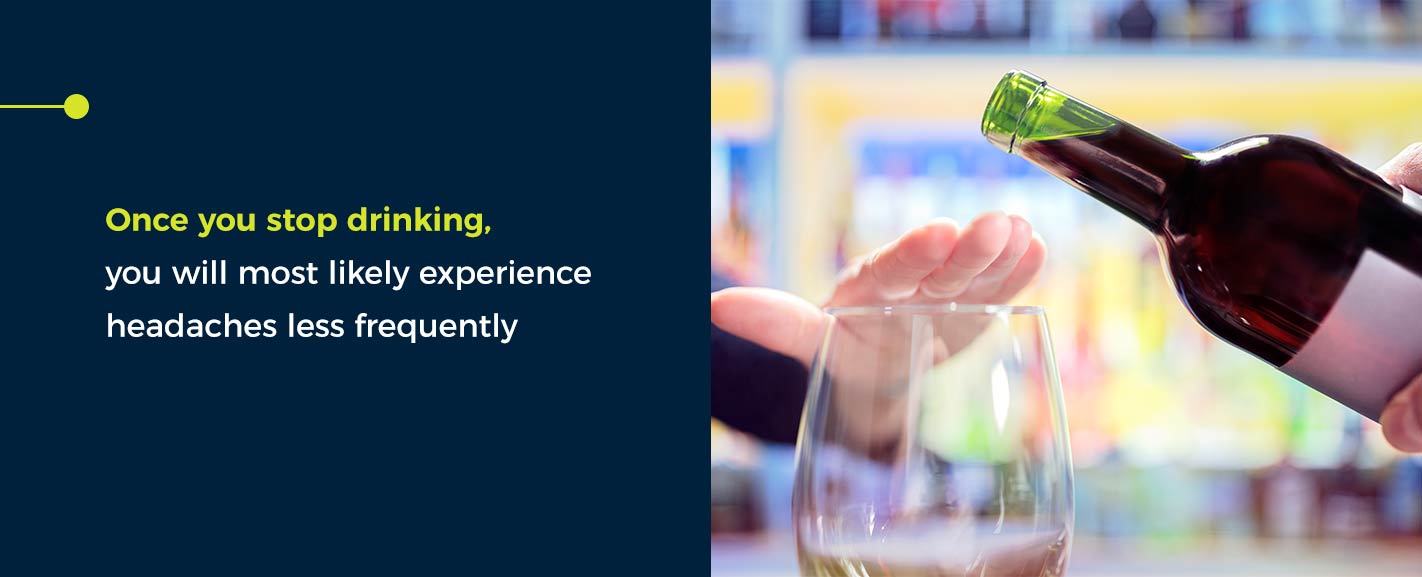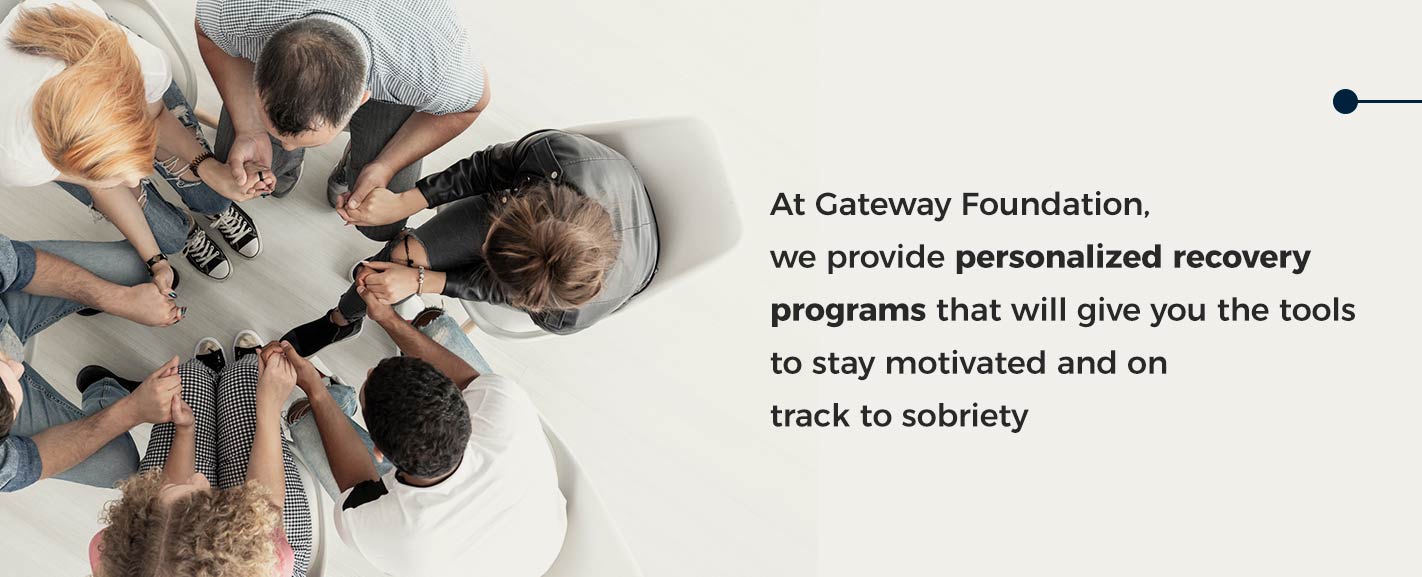- Jan 26
- Alcohol Addiction TreatmentDrug DetoxRecovery
Having a “why” behind any major commitment is one of the best ways to ensure you follow through, and detoxing from alcohol is no different. While it might not be easy to give up alcohol, understanding all the ways that quitting alcohol can enhance your life will help keep you motivated. As you stop heavy drinking, you’ll notice significant improvements in your physical health, mental health, personal life and more.
The sections below will go over the top benefits of quitting alcohol and how you can successfully complete alcohol detox. Keep reading to discover how your life will improve once you’ve given up alcohol for good.
- Top 10 Alcohol Detox Benefits
- How to Get the Benefits of Detoxing From Alcohol
- Detox From Alcohol With Gateway Foundation
Top 10 Alcohol Detox Benefits
If you’re wondering whether quitting drinking is worth it, consider the following 10 benefits of alcohol detox:
1. Decreased Health Risks
Heavy drinking can disrupt your body’s normal functioning and wear down your health. In particular, consuming copious amounts of alcohol can harm your liver. Because your liver’s job is to filter toxins out of the body and alcohol is toxic to your cells, heavy drinking can cause distress to this organ. When your liver cannot function at its full capacity, you may experience serious health problems like fatty liver disease or cirrhosis.
In the long run, alcohol addiction can increase the risk of numerous health conditions, including:
- Alcoholic hepatitis
- Cancer
- Stroke
- Pancreatitis
- High blood pressure
- Arrhythmias (irregular heartbeat)
- Dementia
- Fibrosis
- Digestive issues
- Hearing loss
- Digestive issues
- Depression
- Anxiety
However, quitting alcohol can help repair some of the damage that heavy drinking may have caused to the liver, brain, cardiovascular system and gut. These organs will begin to slowly heal once you stop consuming alcohol regularly. In fact, your liver can even regenerate. As the alcohol exits your system and you establish healthier patterns, you will begin to feel better overall and notice improvements in your physical health.
2. Improved Immunity
Routine alcohol consumption can weaken your immune system because the alcohol prevents it from producing enough white blood cells to fight off bacteria and germs. Even just one night of heavy drinking can decrease your body’s ability to fend off illness for up to a full day.
Over time, a high alcohol intake can blunt your immune system’s responses and detract from your body’s ability to repair itself. Because drinking can take such a toll on the immune system, it is not uncommon for those who struggle with alcohol use disorder to sustain frequent bouts of pneumonia or tuberculosis. However, giving up alcohol can reduce the number of colds, flu strains and other illnesses you are at risk of contracting.
3. Mental Health Benefits
Alcohol addiction is often linked with other mental disorders, such as depression, bipolar disorder, anxiety and schizophrenia. In fact, 9.2 million American adults experience both a substance use disorder and an additional mental illness. However, almost 60% of those adults receive no treatment at all.
Although scientists haven’t determined the exact connection between substance use disorder and other mental health conditions, it is well known that many people turn to alcohol and other substances as a way of self-medicating for symptoms of other mental illnesses. Unfortunately, alcohol exacerbates mental illness as opposed to treating it.
However, quitting alcohol can help reduce mental illness symptoms. As you continue working toward your short and long-term sobriety goals, you will notice a gradual improvement in your mental health. Specifically, you may see increased self-confidence, greater self-respect and fewer feelings of anxiety or depression, especially if you have a co-occurring mental health diagnosis.
4. Improved Sleep
Excessive alcohol consumption often leads to poor sleep or even insomnia. Despite making you drowsy at first, drinking alcohol makes it more difficult to fall asleep and stay asleep for the whole night because it interferes with the body’s natural sleep-wake cycles. Having alcohol in your system can wake you up repeatedly throughout the night by disrupting the important REM stage of sleep.
In addition to cutting down the number of REM cycles that your body goes through per night, drinking alcohol can disturb your breathing. In fact, the way that alcohol relaxes the throat can result in snoring or sleep apnea. Along with these sleep issues, drinking alcohol before bed can make you get up more often throughout the night to pee.
If you want more restful shut-eye, try skipping alcohol, especially at night or in the late afternoon. While your sleep might not improve immediately after you give up alcohol, you will see greater improvements in your sleep quality the longer you abstain from consuming alcohol.
After about a week away from alcohol, you will most likely start to notice you’ve been sleeping better. These improved sleeping habits at night can also boost your mood during the day. The benefits of better sleep extend to your ability to keep your emotions under control and regulate your reactions to high-stress situations.
In addition to enhancing your mood, getting quality sleep each night will enable you to concentrate better and be more productive throughout the day. Because you’ll have more energy and feel less fatigued, you will be able to get more done at work or at home while maintaining a positive attitude.
5. Improved Relationships
Consuming alcohol alone or multiple times each day can turn drinking into an unhealthy pattern that starts to hinder your relationships. Just like any other addiction, alcohol use disorder can make it challenging to maintain relationships because alcohol becomes the most important thing in your life. Sadly, if you can’t control your cravings for alcohol, they begin to control you.
Giving up alcohol allows you to focus more on your relationships at home, work and elsewhere. Instead of having to skip social events or familial commitments because you’re under the influence, you will be able to attend more social gatherings. Thanks to the mood boost and mental health benefits that come with quitting alcohol, you will also find it easier to engage with people and invest in healthy relationships.
6. Enhanced Nutrition and Weight Management
Drinking alcohol can have double the harmful effects of filling your body with sugar and empty calories while depleting the nutrients it truly needs. Without enough essential nutrients like protein, carbohydrates, fat, vitamins and minerals, your metabolism cannot function properly. Alcohol can also derail the nutrition process by disrupting the digestion, storage, utilization and excretion of nutrients. Due to these negative nutritional effects, many people with an alcohol use disorder become malnourished.
Binge drinking, in particular, can involve consuming easily more than 500 extra calories in just one night. Binge drinking is defined as a pattern of alcohol consumption that raises blood alcohol concentration (BAC) levels up to 0.08 g/dLi within a short period of time — about 2 hours. Typically, this level is reached after four or more drinks for women and five or more drinks for men.
In addition to filling you up with hundreds of empty calories, alcohol can also ramp up your appetite and make you more impulsive. You’re less likely to resist fried foods and other tempting menu items when you’re under the influence. Heavy drinking and consuming rich foods can make it difficult to maintain a healthy weight.
However, once you stop drinking and start forming healthier patterns, your body will start absorbing nutrients better. As a result, you may find it easier to reach a healthy weight and stick with a regular exercise routine. Although everyone is different, regaining a healthy weight is a realistic goal for most people who commit to staying sober for the long term.
7. Fewer Safety Risks
At least half of all serious trauma injuries, drownings, deaths from burns and homicides involve alcohol in some way. Alcohol also plays a role in 4 out of 10 suicides, traffic crashes and fatal falls. These statistics show that heavy drinking can put both you and those around you at a higher risk of injury or even death.
However, there is hope. Cutting back your alcohol intake, even by a third, can significantly lower the number of injuries and sick days you sustain. Because no amount of alcohol is completely safe to drink, cutting it out of your life entirely will guard you even further from injury and other health risks.
8. Better Heart Health
Quitting alcohol is one of the best things you can do for your heart. Research has found that those who drink heavily on a regular basis are about twice as likely to experience a cardiovascular event on any given day than those who don’t drink alcohol. In addition, heavy drinkers are up to six times more likely to have a cardiovascular event within a week.
Alcohol misuse has also been linked with an increased risk for these heart problems:
- Heart failure
- Atrial fibrillation
- Ischemic stroke
- Hemorrhagic stroke
- Myocardial infarction
Giving up alcohol can reduce your risk of a cardiovascular health scare and protect your heart. Specifically, when you stop drinking alcohol, your blood pressure and triglyceride levels may go down.
9. Better Hydration
Although alcohol is a liquid, drinking alcohol actually makes you less hydrated. Alcohol is a diuretic, which means it makes your body remove fluids from your blood through the kidneys and bladder at a far faster rate than other beverages. For this reason, drinking alcohol without enough water can quickly lead to dehydration.
Dehydration often results in headaches, as your organs start to take water from the brain to make up for their own water loss. Your potassium and salt levels will also reduce, which can negatively impact nerve and muscle function. Low levels of potassium and salt levels can also cause headaches, nausea and fatigue.
On the other hand, giving up alcohol will help keep you well hydrated and benefit your brain. Once you stop drinking, you will most likely experience headaches less frequently. Without the effects of dehydration slowing you down, you’ll also feel more focused, stable, energized and motivated throughout the day.
Improving your hydration will also do wonders for your skin. While heavy drinking has been linked with inflammatory skin diseases, cutting alcohol out of your diet can improve your skin’s health, making it more radiant. Quitting alcohol can gradually restore your skin’s elasticity, decrease redness or yellowing of the skin and lessen dark circles around the eyes.
10. Clearer Thinking and Memory
Over time, routine heavy drinking can make it more difficult to think clearly or remember things. Alcohol misuse can even cloud your perception of volumes and distances or slow and impair your motor skills. In addition, you may find it more challenging to read other people’s emotions. These negative side effects occur because heavy drinking causes the brain’s hippocampus, which is crucial for memory and learning, to shrink.
Quitting alcohol is the only way to give your brain the chance to partially correct any structural changes that heavy drinking may have caused. Giving up alcohol may also help reverse any adverse effects on your thinking skills, such as your ability to remember things, problem-solving skills and attention span.
How to Get the Benefits of Detoxing From Alcohol
Giving up drinking and reaping the benefits of sobriety is not always easy. Alcohol withdrawal is a real challenge that may make it more difficult to resist drinking once you’ve decided to quit. The symptoms of alcohol withdrawal may include sweating, rapid heartbeat, nausea, vomiting, insomnia, anxiety, tremors or seizures and range from mild to severe.
Trying to go through alcohol withdrawal on your own can be daunting or even dangerous. Prioritize your safety and sobriety by joining an alcohol detox program instead of trying to quit alcohol alone. You will receive high-quality care and effective sobriety strategies from medical professionals when you register for alcohol addiction treatment.
Enrolling in an alcohol addiction treatment program will ensure that you have access to qualified medical staff members with the expertise to help manage the discomfort and risks of alcohol withdrawal symptoms. These treatment methods may include medications, behavioral therapy, mindfulness training and more.
Once you complete your treatment program, you’ll be equipped with the confidence, skills and support system you need to attain long-term sobriety. The 10 benefits listed above are just the beginning — the longer you go without alcohol, the more health improvements you will see. Be prepared to experience positive changes in your health, relationships, work, finances and more.
Detox From Alcohol With Gateway Foundation
If you’re ready to experience all of the benefits of detoxing from alcohol, explore your options for alcohol addiction treatment from Gateway Foundation. At Gateway Foundation, we provide personalized recovery programs that will give you the tools to stay motivated and on track to sobriety. Our team of caring professionals will guide and assist you through every stage of recovery, helping you achieve greater, permanent success.
When you join Gateway Foundation, we are with you for life. With over 50 years of experience and evidence-based treatments, you can be sure you will receive the best care and positive outcomes. Contact us today for more information about how Gateway Foundation can help you or a loved one overcome alcohol use disorder.







